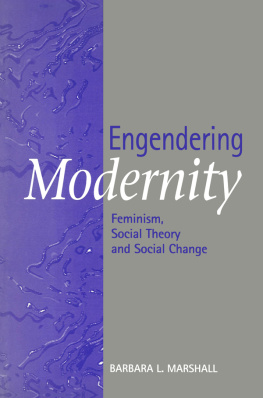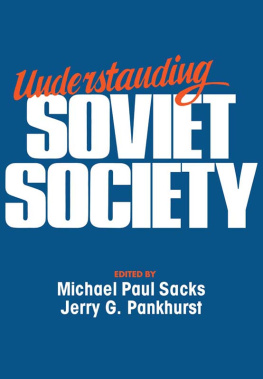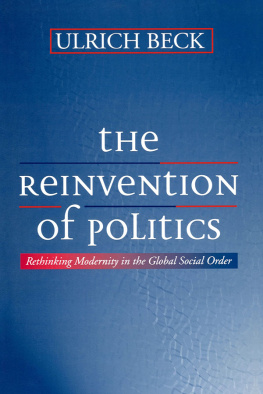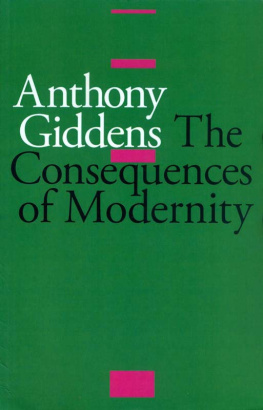
Post-Soviet Social

Post-Soviet Social
NEOLIBERALISM, SOCIAL MODERNITY, BIOPOLITICS
Stephen J. Collier
PRINCETON UNIVERSITY PRESS
PRINCETON AND OXFORD
Copyright 2011 by Princeton University Press
Published by Princeton University Press, 41 William Street,
Princeton, New Jersey 08540
In the United Kingdom: Princeton University Press, 6 Oxford Street,
Woodstock, Oxfordshire OX20 1TW
press.princeton.edu
All Rights Reserved
Library of Congress Cataloging-in-Publication Data
Collier, Stephen J.
Post-Soviet social : neoliberalism, social modernity, biopolitics / Stephen J. Collier.
p. cm.
Includes bibliographical references and index.
ISBN 978-0-691-14830-4 (hardcover : alk. paper)
ISBN 978-0-691-14831-1 (pbk. : alk. paper)
1. Russia (Federation)Economic policy1991 2. Neoliberalism
Russia (Federation) 3. BiopoliticsRussia (Federation)
4. Post-communismEconomic aspectsRussia (Federation) I. Title.
HC340.12.C647 2011
330.947dc22 2010048983
British Library Cataloging-in-Publication Data is available
This book has been composed in Sabon
Printed on acid-free paper.
Printed in the United States of America
10 9 8 7 6 5 4 3 2 1

For my family
Contents

CHAPTER TWO
The Birth of Soviet Biopolitics
CHAPTER THREE
City-building
CHAPTER FOUR
City-building in Belaya Kalitva
CHAPTER FIVE
Consolidation, Stagnation, Breakup
CHAPTER SIX
Adjustment Problems
CHAPTER SEVEN
Budgets and Biopolitics: On Substantive Provisioning and Formal Rationalization
CHAPTER EIGHT
The Intransigence of Things
EPILOGUE
An Ineffective Controversy
Illustrations and Tables

ILLUSTRATIONS
TABLES
Preface: Formal and Substantive

What would need to be studied now... is the way in which the specific problems of life and population were raised within a technology of government which, without always having been liberal... was always haunted since the end of the eighteenth century by liberalisms question.
Michel Foucault, Birth of Biopolitics
IN 1994, JEFFERY SACHS DELIVERED an address on Russia to the World Banks annual conference on development economics. Sachs was, at the time, an important voice in U.S. discussions about Russia; a commenter on his paper called him the worlds leading advisor to countries seeking to make the transition from socialism to markets (Williamson 1994: 81). After a turbulent first few yearsmarked by progress in privatization and liberalization, but limited success in stabilization and persistent economic declinethe project of transition seemed to be at a crossroads, having barely staggered through a series of crises that included the shelling of the Russian Parliament in 1993. Characteristically, Sachs did not waver in his advice or outlook; despite the difficulties, he saw an opening. In conditions of state breakdown, with opposition disorganized and the risk of social chaos acute, it remained possible for a small group of policymakers, backed by international support, to begin stabilization (Sachs 1994: 72). The road ahead required renewed focus on structural adjustment, which he defined in an article published two years later as the initial reallocation of resources in the economy following the introduction of market forces (Sachs 1996: 128).
Sachss vision of post-Soviet transformation was laid out in the language of what Karl Polanyiin a discussion that is seminal in economic anthropologycalled formal economics, which referred to problems of efficiency in a definite situation of choice, paradigmatically, a market (Polanyi 1977). But this vision of structural adjustment also had profound implications for what Polanyi called the substantive economy that evolved under socialismthe instituted processes involved in the material satisfaction of human wants. This substantive economy included the mechanisms of planned production, controlled prices, and collective property, all of which seemed easily dismantled (at least to some observers). But it also included the sedimented products of socialist institutions of industrial coordination, social welfare, and urban planning. The resources in the economy to which Sachs alluded were, to paraphrase Polanyi, nothing other than the universe of human settlements, resource flows, and elements of production that comprised the fabric of collective life. Their reallocation suggested a tremendous upheaval.
The problem of structural adjustment dominated Russian politics from Soviet breakup in 1991 to the devaluation in 1998. As observers of post-Soviet affairs have long pointed out, developments in this period resonated profoundly with those described in Polanyis classic study, The Great Transformation, which examined the tangled births of market society and what he called the liberal creed in the early nineteenth century.
More than a decade after the devaluation of 1998 it is striking that the figures of transition and the Washington Consensus now seem to be the barely discernable features of an already-distant horizon. In the ensuing decade, high politics in Russia were no longer dominated by the problems of stabilization and liberalizationwrapped up in the governments delicate dance with foreign creditorsbut, rather, with the centralizing and state-building projects of a government that became defiantly independent of foreign influence. Reform, meanwhile, has apparently been decoupled from the global project of liberalization with which transition and the Washington Consensus were associated. To the extent that neoliberal reforms have continued to be pursuedand I will be at some pains in this book to show that they have beenthey have not emphasized the austere vision of marketization that dominated the 1990s. Instead, they have addressed more complex questions relating to the mundane elements of the post-Soviet substantive economy: the material infrastructures, apartment blocks, urban utilities, social norms, and budgetary routines that were created under socialism and have had persistent significance after its demise.
One premise of this book is that the questions first posed in the fractious debates around transitionand that, in the 1990s, were so convincingly framed by Polanyis analysis of an epochal battle of markets versus societyhave not lost interest. The fate of the substantive economy produced by socialism; the tradition of thought that claims the mantle of classical liberalism; and the governmental adjustments among the population, production, and social welfareall remained crucial problems in the second decade of post-Soviet change. But the Polanyian vocabulary for thinking about themand this is a second premiseis no longer adequate. We require a different intellectual apparatus to ask howin Russia, but not only in Russiathe problems of economy and society, health and welfare, are raised in (liberal) technologies of government.
Next page















